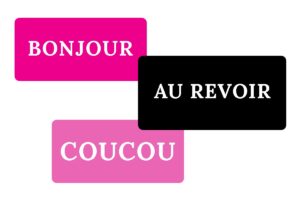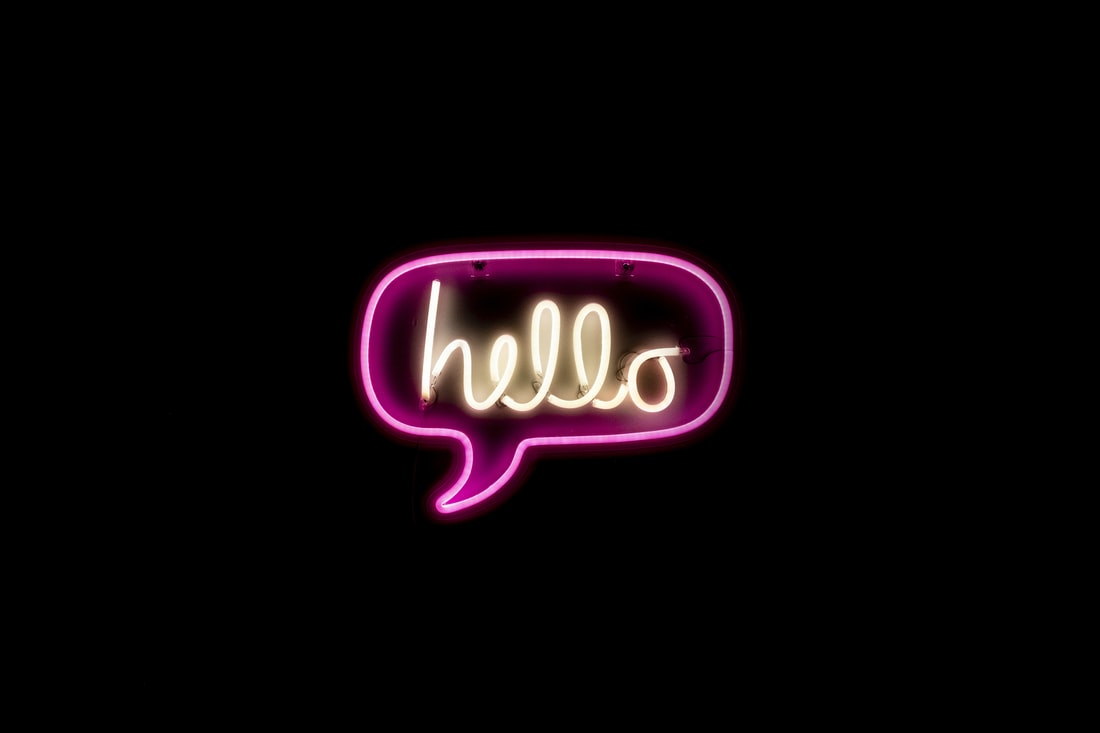There is more to French greetings than just saying Bonjour.
While bonjour is a great choice and is useful in most situations, there are so many other friendly French salutations to choose from.
Today we will talk about how to greet in French in different situations, both formal and informal.
How to say hello in French
Good morning is usually the first thing new language students endeavor to learn, along with basic French phrases. Afterward, the possibilities are limitless.
The language you use depends on the situation and your relationship with the other person.
1. Bonjour
Hello / Good morning
Looking for a way to say “good morning” in French? If you are seeing someone for the first time of the day, use bonjour to say either “good morning” or “hello”. You can use a less formal version of “hello” if you encounter the same person later in the day.
2. Bonsoir
Hello / Good evening
Used almost instantly to greet someone at a late hour, this word is as formal as it is informal.
3. Salut !
Hi
An informal version of “Hello”, this word will be reserved for people you often see, such as friends, family, or even colleagues.
4. Ça va ?
How are you?
Like “Hi”, it will be reserved for friends or at least close people. It is often used after “Hello” or “Hi” to ask the person you’re talking to how they are doing, and therefore start a conversation.
5. Coucou
Hey
It is used, as a salutation or to draw someone’s attention, and it literally sounds like “cuckoo”. Similar to “hey” in English, coucou is an extremely friendly French greeting, so it should only be used between close friends and family members.
“Jouer à coucou” translates to “play peekaboo” – a hide-and-seek game played by little children. There is no doubt that this word carries a familiar tone and will sound confusing in any formal setting.
How to say Goodbye in French
Are you on your way out? When you want to make a departure or wish someone goodbye, use these expressions. Instead of using Au revoir on every occasion, see that there are more options to choose from. Some of them, such as Salut, have both meanings of “hello” and “goodbye”. However, it’s important to know when it is appropriate to use it, in formal or informal situations.
1. Au revoir
Goodbye
This is the most common way to say goodbye. It can be used almost anywhere – and in both formal and informal situations. The literal translation of the phrase is “until we meet again”. If you know you won’t see the person again, you can use the word adieu, which means “until God”.
2. Bonne journée
Good day
It is used to wish someone a good day, and is equivalent to the English phrase “good day”.
3. Bonne soirée
Good evening
Obviously, this term is used to wish a good evening when leaving. Its variant would be Bonne nuit (good night), used when getting ready for bed.
4. Salut !
Hello/ Goodbye
If the term salut is used to say “hello” to a person, it can also mean “goodbye”. It is an informal way to say goodbye to close friends or family. You can also use it if you know you’ll see a person later in the day in a more relaxed environment.
5. À plus tard / À toute à l’heure
See you later
It means “I’ll see you later” in French. It is used to let someone know that you hope to see them in the future, but at an unknown time. When you know that you’ll see someone later on this day, you can say à tout à l’heure in either a formal or informal situation. À plus tard is appropriate for informal situations only. The short form à plus may also appear in formal emails as “A+”.
6. À bientôt
See you soon
Au revoir is the best way to say “see you soon” in French, in any case. It is okay to use à très bientôt when you know that you will see them very soon.
7. À demain!
See you tomorrow!
Alternatively, the word demain could be replaced with any day of the week if you know you will see the other person soon.
If you want to learn how to pronounce all the greetings and salutations in French, see also How to Greet People in French.
C’est simple comme bonjour
Perhaps, not as simple as the famous French idiom says, French greetings depend on the environment, the time of day, and the person you are conversing with. Choosing the right greeting also depends on if you are going to be seeing that person again later in the day, or not.
With this article, you learned how to say hello and goodbye at different times of the day and in different circumstances.
You’ve got the beginning and end of the conversation in French covered. Now you are ready to learn all the rest of French and the most important verb “to be”.



